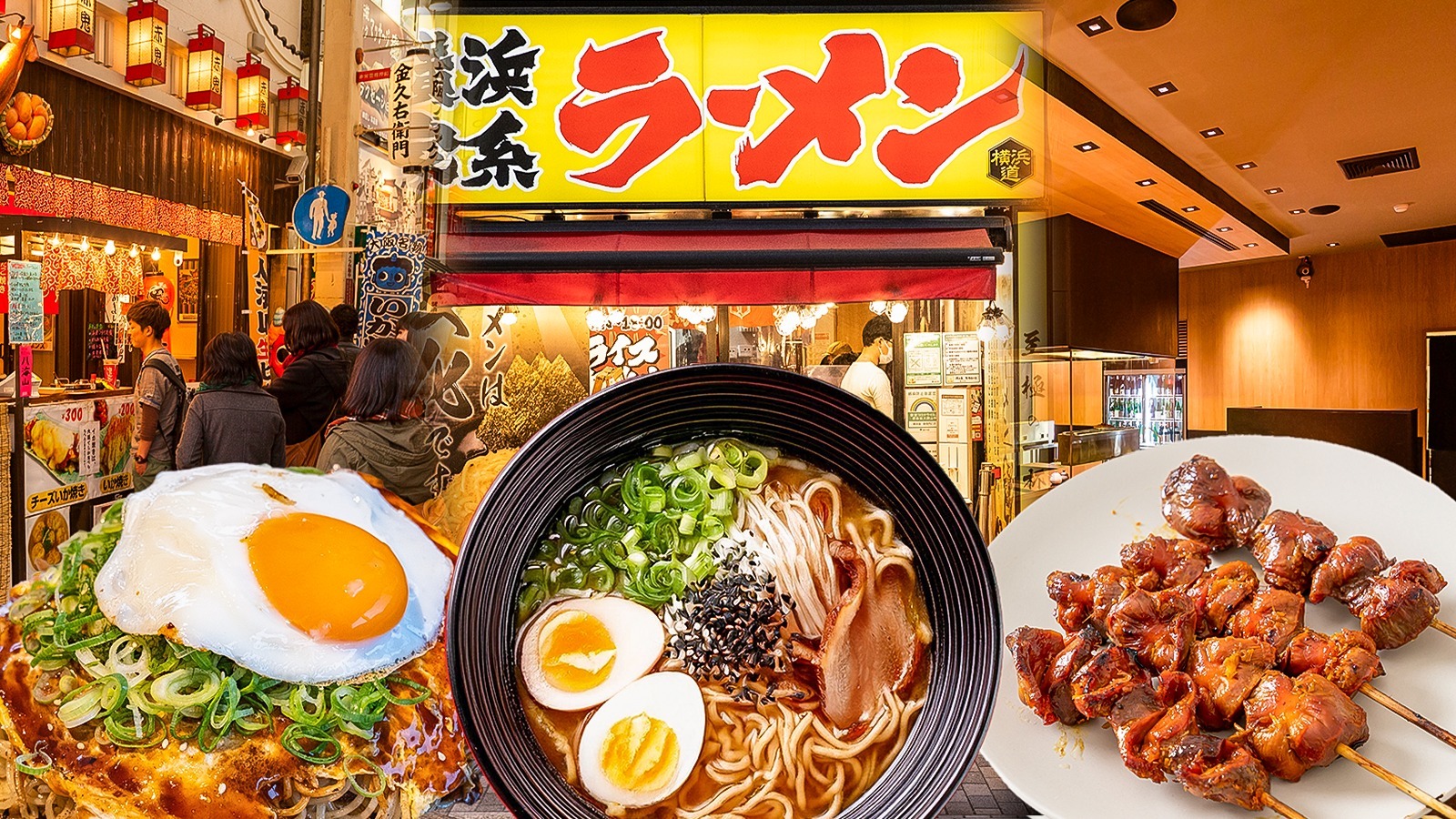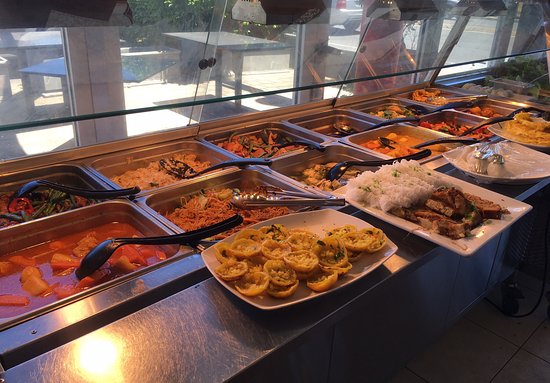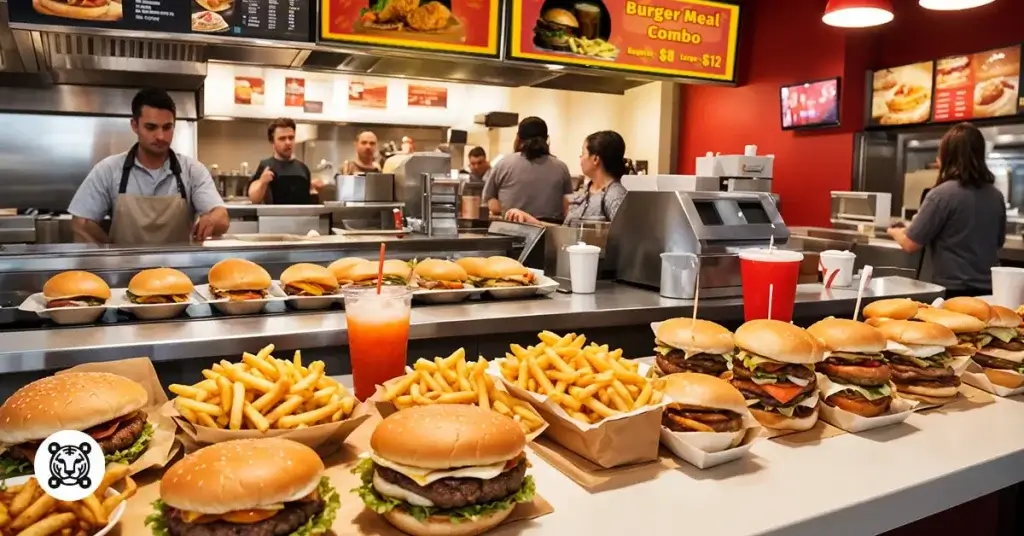2023's trend-defining Restaurants pushing the boundaries of taste
Dining Thrills: Discover Innovative Restaurants Transforming the Food Scene
The modern eating landscape is experiencing a remarkable improvement, noted by innovative restaurants that are redefining cooking standards. From the surge of pop-up establishments welcoming seasonal ingredients to immersive experiences that engage the detects in unprecedented ways, these places are establishing brand-new requirements of what it indicates to appreciate a meal. Furthermore, an expanding focus on sustainability and neighborhood sourcing reflects a commitment to both top quality and community. As we discover these fads, the question occurs: what future developments might further improve our cooking experiences?
The Surge of Pop-Up Restaurants
As the cooking landscape develops, pop-up restaurants have emerged as a vibrant pressure, charming food fanatics and business owners alike. These temporary dining establishments, usually set up in unusual areas, provide a special mix of imagination and ease of access, attracting a varied variety of customers. The increase of pop-up dining establishments can be attributed to several factors, consisting of the growing need for novel eating experiences and the business spirit of cooks keen to evaluate their culinary principles without the monetary problem of a long-term location.Pop-up restaurants enable cooks to experiment with food selections, designs, and styles, commonly focusing on seasonal or locally-sourced ingredients. This adaptability not only cultivates development but additionally produces a feeling of necessity, as patrons are drawn to the limited-time offerings. The ephemeral nature of pop-ups cultivates a buzz around the dining experience, encouraging social media sharing and word-of-mouth promotion, which can significantly improve visibility and attract a faithful following.Furthermore, pop-up dining establishments commonly accommodate specific niche markets, varying from vegan and gluten-free choices to ethnic cuisines, consequently meeting the varied dietary choices of modern-day consumers. Consequently, these establishments contribute to the rich tapestry of the food scene, pushing borders and challenging standard notions of dining.
Immersive Dining Experiences

Sustainable Practices in Food
Embracing sustainability, ingenious restaurants are redefining their culinary techniques to reduce ecological effect while boosting the dining experience. These facilities focus on regional sourcing, commonly working together with close-by farmers and manufacturers to ensure that ingredients are fresh and seasonal. This not just decreases the carbon impact related to long-distance transportation yet additionally supports neighborhood economies.In addition to sourcing, restaurants are increasingly embracing practices that reduce waste. Lots of are carrying out composting systems and utilizing food scraps creatively, transforming what would generally be disposed of into savory parts of new meals. Veggie trimmings can locate new life in stocks or garnishes, while stale bread is repurposed right into croutons or bread puddings.Moreover, the trend towards plant-based menus is gaining energy. By stressing veggies, grains, and beans, restaurants can substantially lower their environmental impact, as plant-based foods generally require fewer sources and produce much less greenhouse gas discharges contrasted to meat manufacturing. Cutting-edge cooks are crafting meals that not just celebrate these active ingredients yet likewise supply diners with an exceptional culinary experience.Furthermore, many establishments are adopting environment-friendly methods such as using biodegradable packaging for takeout and investing in energy-efficient appliances. These steps reflect a commitment to sustainability at every level of operation, permitting restaurants to enjoy their dishes with the understanding that their selections add to a much healthier world. As the food scene proceeds to develop, the assimilation of lasting practices comes to be not just a fad, but a necessary criterion for the future of dining
Tech-Enhanced Dining Experiences
Tech-enhanced eating adventures are changing the way customers experience dishes, with over 70% of restaurants currently incorporating electronic developments to boost service and involvement. These advancements are not just fads; they are fundamental changes that redefine the culinary landscape. From the moment restaurants go into a restaurant, technology is flawlessly woven into the experience, improving both comfort and enjoyment.One of one of the most notable developments is the usage of mobile applications for appointments and menu surfing. Restaurants can now watch comprehensive summaries, dietary details, and also the origins of components at their fingertips. This openness promotes educated selections and permits visitors to customize their dining experience to their preferences.Furthermore, interactive tables equipped with touchscreens provide an interesting platform for ordering and enjoyment. Diners can personalize their dishes, discover a glass of wine pairings, or perhaps play games while waiting for their meals. This integration of technology not only simplifies the getting procedure but also transforms eating right into a dynamic, communal activity.Moreover, some facilities are utilizing increased fact (AR) to produce immersive eating experiences. By simply aiming a smart device at a meal, patrons can visualize the ingredients and cooking approaches in an interesting manner, linking the void between the cooking and electronic worlds.As dining establishments remain to accept these technical advancements, the dining experience comes to be progressively customized, effective, and enjoyable. This improvement mirrors a wider pattern towards boosting consumer interaction, guaranteeing that each dish is not simply about nutrition, however a remarkable experience in eating.
Worldwide Tastes With a Twist
The culinary landscape is increasingly marked by blend cuisine developments that blend traditional tastes with unforeseen aspects - Restaurants. One-of-a-kind ingredient pairings not only boost the dining experience yet also pay homage to cultural heritage, reimagining cherished dishes in interesting brand-new means (American Restaurant). This imaginative approach welcomes diners to discover diverse international influences while experiencing familiar preferences in a fresh context
Fusion Food Innovations
Imagination in the cookeries has actually caused a vibrant rebirth of combination cuisine, where chefs mix diverse international tastes to create cutting-edge recipes that defy conventional limits. This culinary motion goes beyond plain combination, concentrating on the unified integration of active ingredients and techniques from different cultures.Restaurants specializing in combination food are redefining eating experiences by offering recipes that narrate with flavor, technique, and presentation. The marital relationship of Japanese sushi with Peruvian ceviche has actually resulted in distinct rolls that commemorate both cooking heritages. Indian spices have discovered their method right into Italian pasta dishes, offering a fascinating spin on traditional recipes.Chefs are likewise exploring with food preparation techniques, such as using typical frying pan techniques to prepare Latin American stir-fries, thereby developing a rich tapestry of preferences and textures. Seasonal accessibility of ingredients additionally improves this innovative process, enabling for fresh analyses of classic dishes. The appeal of blend cuisine hinges on its capability to shock and delight the palate, urging diners to explore brand-new culinary landscapes while cultivating a higher recognition for the diversity of international gastronomy.
Unique Ingredient Pairings
Cooking technology commonly flourishes on the unexpected, and one-of-a-kind component pairings are at the forefront of this fad in the modern eating landscape. Cooks are significantly try out combinations that stun and thrill the taste, boosting the dining experience beyond traditional boundaries.For instance, the association of sweet and mouthwatering has become a characteristic of contemporary cuisine. Eddie's Rise N' Dine Williamsville IL. Think about crunchy duck offered with a cherry and balsamic glaze, where the tartness of the cherries enhances the richness of the meat. Recipes including miso-infused chocolate desserts display exactly how umami can enhance sweet taste, creating a well balanced flavor account that intrigues diners.Furthermore, the use of unconventional spices in unanticipated contexts, such as saffron in a classic risotto combined with lemon enthusiasm, highlights exactly how cooking borders can be redefined. These innovative pairings not just create aesthetic and textural contrasts but also welcome restaurants to explore a spectrum of global flavors in a single dish.As dining establishments proceed to press the envelope, the thrill of finding brand-new tastes with unique active ingredient pairings promises to be a defining attribute of the modern-day food scene, welcoming adventurous eaters to delight in these imaginative culinary discussions
Social Heritage Reimagined

The Art of Multi-Sensory Foods
In the domain name of culinary development, multi-sensory dishes are changing the eating experience by linking flavor and scent in enchanting methods. The impact of visual presentation improves not just the visual allure but likewise the assumption of news preference, while meticulously curated soundscapes raise the setting. With each other, these elements produce an alternative experience that involves all detects, changing how clients connect with food.
Flavor and Aroma Blend
An expanding variety of cooks are accepting the principle of taste and scent combination, identifying that a dish is not simply a mix of components yet a holistic experience that involves all the senses. This cutting-edge approach stresses the intricate partnership between taste and smell, both of which significantly influence our understanding of food.Chefs are trying out different methods to improve flavors while simultaneously crafting aromatic profiles that elevate the dining experience. The use of aromatic herbs and spices not only adds depth to dishes yet additionally tantalizes the olfactory detects, developing an extra immersive experience. Mixtures, smoke, and vital oils are significantly popular, permitting cooks to manipulate scent and improve the overall taste profile.Moreover, the strategic pairing of corresponding and contrasting tastes can stimulate psychological reactions, transforming a dish right into a memorable occasion. Diners are urged to relish each bite, as the interaction of flavors and aromas unfolds, welcoming them to explore new measurements of taste. This thoughtful combinations of sensory aspects promotes a gratitude for the artistry of cuisine, positioning flavor and scent combination as a critical pattern in modern-day gastronomy.
Visual Discussion Influence
Past taste and fragrance, the visual presentation of a meal plays an essential duty in the general eating experience. The aesthetic appeals of food can evoke emotions, established the tone for the meal, and enhance the expectancy of tasting. Ingenious dining establishments are progressively recognizing that a meal's appearance can influence visitors' perceptions and contentment degrees, occasionally also prior to the very first bite is taken.Artful plating methods, lively color mixes, and imaginative garnishes add to a dish's visual appeal. Chefs are currently trained not simply in culinary skills, however additionally in the art of presentation, frequently drawing motivation from different imaginative techniques. As an example, using unfavorable space in plating aids to create focal points, permitting the ingredients to shine.Moreover, the fad of multi-sensory meals integrates visual components with other senses, such as appearance and temperature level, to produce an alternative eating experience. This approach urges diners to engage even more deeply with their food, transforming a simple dish into a remarkable event. Fundamentally, the aesthetic discussion of food is not simply an aesthetic venture; it is an important part of the eating experience that can raise a meal from common to phenomenal.
Soundscapes in Dining
The experience of eating extends beyond the aesthetic components of a meal; audio also plays a substantial duty in shaping just how food is regarded and enjoyed. Ingenious dining establishments are progressively discovering the idea of soundscapes-- curated audio atmospheres made to boost the dining experience (Eddie's Rise N' Dine Williamsville IL). The interaction of audio and taste can profoundly affect a person's assumption of taste, structure, and total satisfaction.Research indicates that particular noises can amplify or decrease tastes. As an example, high-pitched audios might boost sweet taste, while reduced regularities can enhance resentment. This phenomenon has actually led some cooks and restaurateurs to team up with audio designers, developing one-of-a-kind acoustic backdrops that match their culinary offerings. Restaurants.In these setups, restaurants might discover themselves involved in a thoroughly crafted audio environment, varying from the gentle rustle of leaves to the rhythmic sounds of a bustling cooking area. Such multisensory meals not just involve the palate but also stimulate psychological responses, enhancing the general experience. By harnessing the power of sound, these ingenious eating establishments are redefining the means we experience food, motivating customers to enjoy each bite while totally engaging their senses
Community-Centric Culinary Efforts
Frequently, innovative dining establishments are redefining their roles within neighborhood areas by executing culinary initiatives that focus on social obligation and inclusivity. These facilities are increasingly appealing in practices that not just enhance their business versions however likewise add to the well-being of their neighborhoods.One famous trend is the establishment of area cooking areas that supply cooking training and task placement for underserved populaces. These cooking areas not only offer useful skills but also foster a feeling of belonging, empowering individuals to produce their own culinary paths. Furthermore, lots of restaurants are partnering with local ranches and producers, highlighting farm-to-table practices that support sustainable agriculture and minimize carbon impacts. This not only ensures quality and top quality yet likewise reinforces regional economies.Another initiative obtaining grip is the idea of public dining experiences, where diverse groups integrated to share dishes and tales. This technique cultivates understanding and gratitude among different societies, damaging down barriers and cultivating inclusivity. Additionally, dining establishments are significantly embracing waste reduction techniques, such as composting and reusing food scraps, which not just addresses ecological problems but additionally encourages clients to assess their intake habits.
Often Asked Questions
Exactly How Do Ingenious Dining Establishments Keep Consistency in Food Quality?

What Are the Expenses Linked With Starting a Pop-Up Restaurant?
Starting a pop-up restaurant entails numerous expenses, consisting of place leasing, equipment acquisitions, permits, marketing, staffing, and food products. Furthermore, business owners should budget plan for unexpected expenses to ensure smooth procedures throughout the endeavor's period.
How Do Restaurants Select Their Areas for Pop-Up Occasions?
Dining establishments choose pop-up occasion areas based upon target demographics, foot website traffic, ease of access, and competition. In addition, they think about neighborhood market fads and neighborhood engagement possibilities to maximize exposure and enhance client experience throughout the event.
What Influence Do Food Trends Carry Dining Establishment Menus?
Food patterns substantially influence restaurant food selections by directing active ingredient choice, affecting recipe imagination, and forming customer choices. Facilities often adapt to these trends to enhance client appeal, maintain competition, and line up with advancing cooking expectations.
Exactly How Can Diners Support Community-Centric Culinary Initiatives?
Restaurants can sustain community-centric culinary efforts by patronizing regional restaurants, joining farm-to-table events, involving with food cooperatives, promoting sustainable techniques, and supporting for plans that strengthen local food systems and boost area well-being.